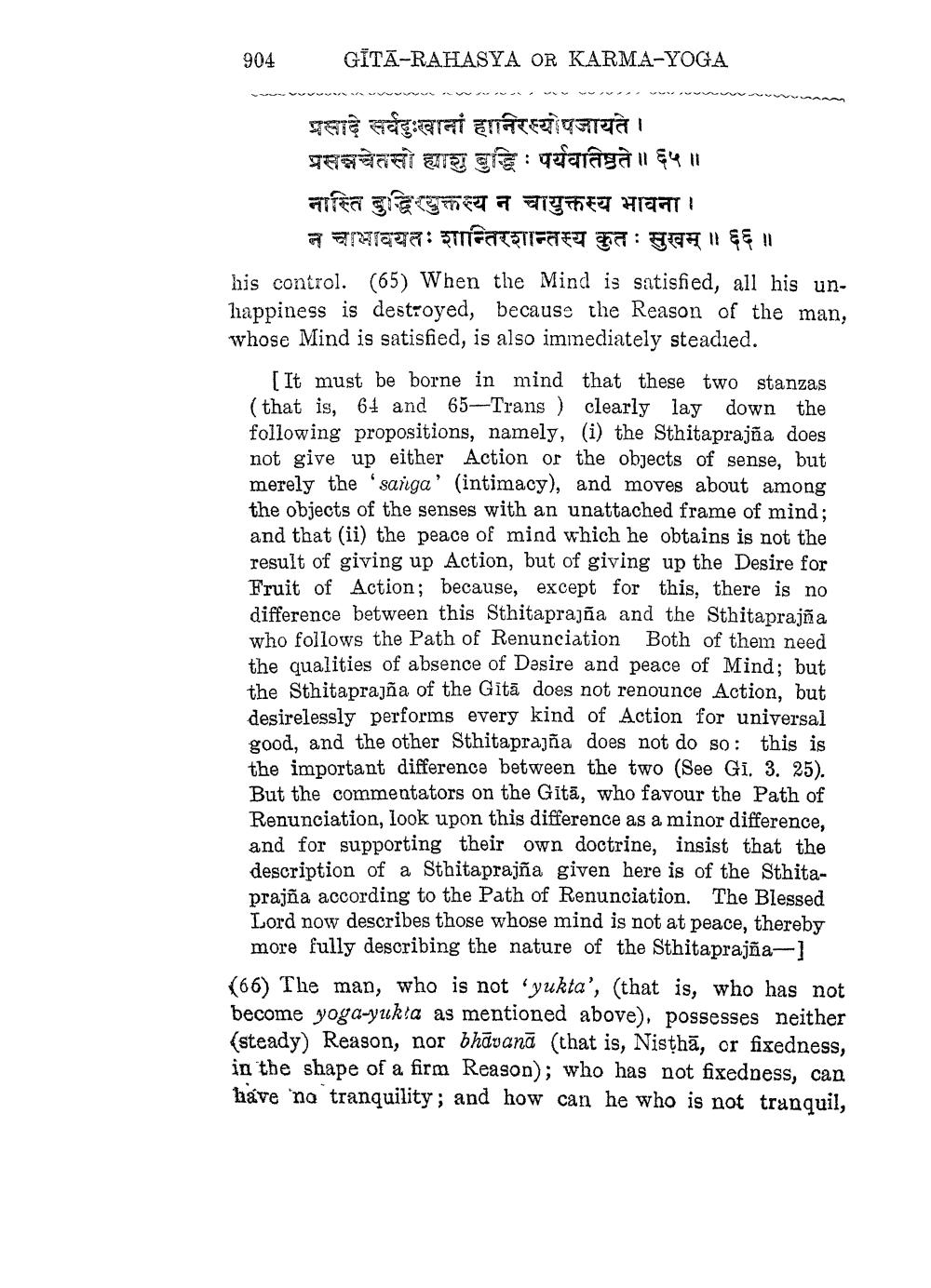________________
904 GITA-RAHASYA OR KARMA-YOGA
wwwwwwwwwwwwwwwwww.. प्रसादे सर्वदुःखानां हानिरस्योपजायते। प्रसन्नचेतसो ह्याशु बुद्धि : पर्यवतिष्ठते॥६५॥
TIFFT Teamet a Tiga Hari
a rraga: TTFERTITIFATET : Heh !1 his control. (65) When the Mind is satisfied, all his unlappiness is destroyed, because the Reason of the man, whose Mind is satisfied, is also immediately steadied.
[ It must be borne in mind that these two stanzas (that is, 64 and 65-Trans ) clearly lay down the following propositions, namely, (i) the Sthitaprajña does not give up either Action or the objects of sense, but merely the 'sanga' (intimacy), and moves about among the objects of the senses with an unattached frame of mind; and that (ii) the peace of mind which he obtains is not the result of giving up Action, but of giving up the Desire for Fruit of Action; because, except for this, there is no difference between this Sthitaprajña and the Sthitaprajña who follows the Path of Renunciation Both of them need the qualities of absence of Desire and peace of Mind; but the Sthitaprajña of the Gitā does not renounce Action, but desirelessly performs every kind of Action for universal good, and the other Sthitaprajña does not do so: this is the important difference between the two (See Gi. 3. 25). But the commentators on the Gītā, who favour the Path of Renunciation, look upon this difference as a minor difference, and for supporting their own doctrine, insist that the description of a Sthitaprajña given here is of the Sthitaprajña according to the Path of Renunciation. The Blessed Lord now describes those whose mind is not at peace, thereby
more fully describing the nature of the Sthitaprajña-1 (66) The man, who is not "yukta', (that is, who has not become yoga-yukla as mentioned above), possesses neither (steady) Reason, nor bhāvanā (that is, Nisthā, or fixedness, in the shape of a firm Reason); who has not fixedness, can have 'na tranquility; and how can he who is not tranquil,




